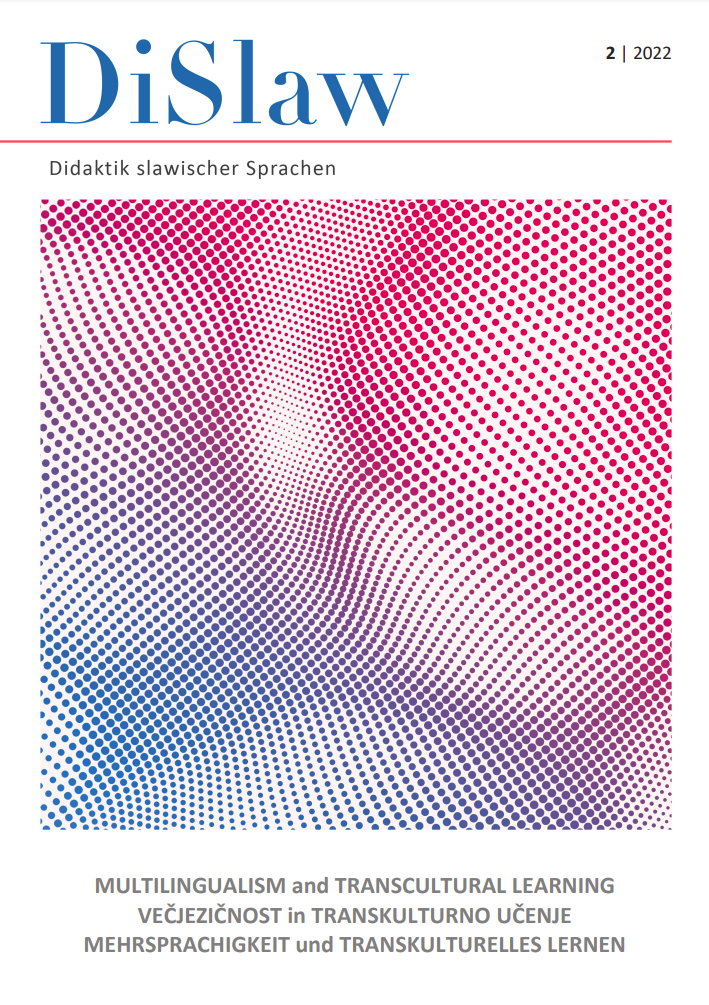Multilingualism and Transcultural Learning in the Curriculum of the Interdisciplinary Cross-Border Studies Master's Program
DOI:
https://doi.org/10.48789/2022.2.4Keywords:
multilingualism, Cross-Border Studies Master’s degree program, Slavic, Germanic, and Romance languages, University of KlagenfurtAbstract
The paper addresses one question: What makes the Cross-Border Studies (CBS) MA a multilingual study program? The first part presents the CBS MA curriculum, developed on the basis of current research literature on multilingualism and transcultural learning. The multilingual essence of the trans-and interdisciplinary CBS MA program is visible among others in the German-and English-language tracks. Besides these languages of instruction, the MA program encompasses at least two target languages, one of which is mandatorily Slavic (BCMS, Russian or Slovene). The intended objective of the CBS MA is to educate future experts who will actively operate between languages and cultures. Therefore, the program’s focus is not on acquiring language skills only, but also skills in the intercultural, i.e., interpersonal, sociolinguistic, and social areas. These are covered in the inter-and transdisciplinary compulsory and guided electives (Gebundene Wahlfächer). In the second part of the paper, the CBS MA is discussed in the context of multilingual and multicultural universities. We argue that it is possible to introduce English as a language of instruction and keep a multilingual setting, which includes preserving the local languages. Numerous strategies used within the program both in and outside the classroom to reinforce multilingualism and language diversity are presented.



